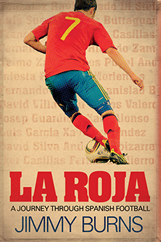We have grown used to Messi speaking through his football, but on Tuesday night against Nigeria he showed a less typical, for him, capacity to play the leader.
While his opening goal showed the vision, touch, composure and accuracy that has marked his genius for more than a decade, as illustrative of personality was his talk to his team-mates at half time, and the celebration of Argentina’s second goal.
The talk just before Argentina walked out for the second half, by all accounts, involved not a huge speech but a few words spoken with sufficient conviction to raise morale in a team that had just had its renewed self-confidence badly dented by the Nigerian equaliser.
It was a typical Argentine rallying call delivered not by an army general or a Peronist trade unionist leader but by a bearded warrior of the game, uncompromising, defiant, and melodramatic, urging fellow players to give it their all, to live or die,to go over the parapet and forward with no other aim but to win.
And what a contrast to the introverted tongue-tied Messi of earlier games and indeed of previous world cups where Argentina had to rely on more assertive sergeants like to lift shattered morale among his under-performing fellow countrymen , and try and make them raise their game to his level, often without success.
Among those inspired to “keep going forward” was Marcos Rojo, a defender who delivered the match-winning volley with the predatory spirit , vision, and aggressive advance positioning of a star striker, or a Messi.
It was a goal that seemed there and there to ignite the whole of Argentina, and provoked Messi’s own very special celebration, as he piggy-backed Rojo before himself kneeling down and looking up at the sky, thanking God with open arms.
Both gestures by Messi recalled other legendary moments in football history. One, on Ist May 2005, had Messi, aged 17, himself being piggybacked by Ronaldinho after scoring a brilliant rites of passage winning goal against Albacete in the Spanish La Liga-“the goal that started the Barcelona legend”, as the BBC reported at the time. The day after the goal, Maradona, the still undisputed greatest ever player , rang Messi from Buenos Aires to congratulate him. Maradona , the as yet undisputed living legend of the game , exclusively blessed with the Hand of God, acknowledging the pretender to the succession..
Maradona was there yesterday, but a mockery of the legend he was once was-less a noble Caesar than a decadent Caligula, presiding over football’s equivalent of the Roman theatre. He cut a grotesque image, as he watched the Argentine team , all from a stadium balcony seat, and gave us an overdose of his theatrical range, from rolling eyes to abusive two fingers.
But as he celebrated Argentina’s first and second goals, Maradona was no longer alone in claiming a privileged line to his fellow countrymen, let alone God. Even if Messi had yet to win the World Cup, his genius of play coupled with his exemplary leadership exteriorised a transformation of character that if maintained could not only show God firmly on Messi’s side, but also become one of the defining themes of this tournament.

